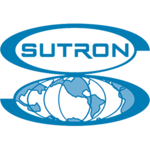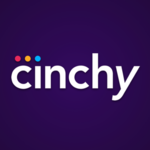Description

Adverity

Hydromet Cloud
Comprehensive Overview: Adverity vs Hydromet Cloud
Adverity, Hydromet Cloud, and Rons Data Stream are distinct solutions designed for different purposes within data management and analytics. Here's a breakdown of each, along with their target markets, market share, user base, and differentiating factors:
Adverity
a) Primary Functions and Target Markets
- Primary Functions: Adverity is a data analytics platform that specializes in marketing data integration, analytics, and automation. It provides tools for data acquisition, transformation, and visualization, allowing marketers to make data-driven decisions more effectively. The platform consolidates data from a variety of sources, such as social media, CRM systems, and web analytics, into a unified dashboard.
- Target Markets: Adverity targets marketing professionals, advertising agencies, and enterprises that require robust data analytics capabilities to optimize their marketing strategies and operations. Industries including e-commerce, retail, media, and telecommunications widely use this tool.
b) Market Share and User Base
- Market Share and User Base: Adverity is a leading platform in the marketing analytics sector, but precise market share figures aren't typically disclosed publicly. The user base primarily consists of medium to large enterprises and agencies that manage complex marketing data needs. Adverity has gained traction due to its focus on marketing analytics and the flexibility it offers in integrating various data sources.
c) Key Differentiating Factors
- Differentiating Factors: One of Adverity's key strengths is its extensive data connector library, allowing integration with a wide range of third-party services. Its focus on the marketing domain gives it an edge over general-purpose data platforms. Adverity also offers advanced analytics capabilities, including predictive analytics and artificial intelligence-driven insights tailored for marketing.
Hydromet Cloud
a) Primary Functions and Target Markets
- Primary Functions: Hydromet Cloud is specialized in environmental data management, focusing on hydrology and meteorology. It is used for collecting, processing, and analyzing weather and water data, providing real-time insights and historical data analysis.
- Target Markets: The target markets for Hydromet Cloud include government agencies, environmental research organizations, agriculture sectors, and industries dependent on weather and water conditions, like water management utilities and disaster management authorities.
b) Market Share and User Base
- Market Share and User Base: The market for hydrology and meteorology solutions like Hydromet Cloud is more niche compared to general business analytics tools. It's adopted by organizations that need precise environmental monitoring, often involving government agencies and environmental researchers. The user base is more specialized than Adverity’s.
c) Key Differentiating Factors
- Differentiating Factors: Hydromet Cloud differentiates itself through its focus on environmental data. Features such as advanced geospatial analytics, real-time data capabilities, and integration with environmental sensors and satellite data are critical to its offering. Its specialization makes it essential for weather-sensitive operational planning and decision-making.
Rons Data Stream
a) Primary Functions and Target Markets
- Primary Functions: Rons Data Stream is a data streaming tool that focuses on real-time data processing and integration. It enables businesses to process large volumes of data streams from various sources, facilitating real-time analytics and decision-making.
- Target Markets: It targets enterprises across industries that require real-time data processing capabilities, such as finance, telecommunications, e-commerce, and high-frequency trading environments.
b) Market Share and User Base
- Market Share and User Base: As a data streaming tool, Rons Data Stream would cater to enterprises needing real-time analytics capabilities, but specific market share and user base data might not be publicly available. It likely serves a smaller niche than more expansive data analytics platforms due to its specific focus on streaming data.
c) Key Differentiating Factors
- Differentiating Factors: The primary differentiator for Rons Data Stream is its focus on real-time data integration and analytics. It provides tools to handle high-velocity data and supports low-latency processing, which is crucial for sectors where timely insights are paramount. It stands out through its ability to handle complex event processing and integration with other real-time data infrastructure.
Conclusion
In summary, Adverity, Hydromet Cloud, and Rons Data Stream each serve unique functions tailored to different sectors: marketing analytics, environmental data management, and real-time data processing, respectively. Their success in target markets depends on their specialization and ability to address specific industry needs, with each having unique differentiators such as integration capabilities, real-time processing, or domain-focused analytics.
Contact Info

Year founded :
2015
+43 1 8903155
Not Available
Austria
http://www.linkedin.com/company/myadverity

Year founded :
Not Available
Not Available
Not Available
Not Available
Not Available
Feature Similarity Breakdown: Adverity, Hydromet Cloud
When comparing Adverity, Hydromet Cloud, and Rons Data Stream, it's essential to consider their core functionalities, target users, and industry applications. Here’s a breakdown of their similarities and differences:
a) Core Features in Common
-
Data Integration:
- All three platforms facilitate the integration of multiple data sources. This includes collecting data from various channels and centralizing it for analysis.
-
Data Visualization:
- Each product provides tools for visualizing data, allowing users to create dashboards and reports that illustrate key metrics and insights.
-
Automated Data Processing:
- Automation features help reduce manual work by processing data inputs automatically, converting raw data into structured formats ready for analysis.
b) User Interface Comparison
-
Adverity:
- Known for its user-friendly and intuitive UI, Adverity offers drag-and-drop functionalities that are appreciated by marketers and data analysts alike. The platform emphasizes ease of use with a modern and clean design, which simplifies navigation through complex datasets.
-
Hydromet Cloud:
- The UI is typically structured to benefit users in meteorological and environmental sectors, making it more specialized with specific visual elements pertinent to these areas. While functional, it might not have the general market-polished feel of more commercially wide-ranging platforms.
-
Rons Data Stream:
- This interface is often described as functional but may lack the modern aesthetics found in platforms like Adverity. The focus tends to be more on delivering raw data and technical details rather than on refined user experience features.
c) Unique Features
-
Adverity:
- AI-Driven Insights: Adverity stands out with its AI capabilities that provide predictive analytics and insights beyond just data aggregation.
- Wide Integration Network: It offers extensive integration with numerous marketing and advertising platforms which is particularly advantageous for digital marketing professionals.
-
Hydromet Cloud:
- Environmental and Weather Data Focus: Its specialization in weather and environmental data integration and analysis makes it unique within domains like hydrology and meteorology.
- Forecasting Models: It often includes specific models and analytics geared towards environmental predictions and planning.
-
Rons Data Stream:
- Custom Data Streams: This tool focuses on providing high customizability in data stream creation, allowing users to build tailored data pipelines.
- Technical Flexibility: It offers robust APIs and technical support for users who need more control over their data processing and integration frameworks compared to standard solutions.
Each of these products serves different market needs, and understanding their unique offering helps potential users select based on their specific requirements and domains of application.
Features

Data Visualization
Data Management
Advanced Analytics
Data Integration

Real-Time Weather Data Monitoring
Integration and Compatibility
Security and Compliance
Data Analysis and Reporting
User Management and Collaboration
Best Fit Use Cases: Adverity, Hydromet Cloud
To understand the best fit use cases for Adverity, Hydromet Cloud, and Rons Data Stream, it is essential to examine each product's unique features, capabilities, and intended audience.
a) Adverity
Best Fit Use Cases:
- Marketing and Advertising Firms: Adverity excels in aggregating data from multiple marketing channels. It allows these firms to streamline data collection and reporting, making it easier to assess campaign performance and optimize ad spending.
- Data-Driven Organizations: Any business looking to enhance its business intelligence capabilities can benefit from Adverity. It integrates with a wide range of data sources and offers comprehensive analytics, making it suitable for firms aiming to leverage large datasets for strategic decision-making.
- E-commerce Businesses: These businesses can use Adverity to track and analyze customer interaction data from various platforms, facilitating insights into customer behavior and enhancing user experience.
Industry Vertical & Company Size:
- Adverity is versatile and caters to a broad range of industries, but it is particularly strong in marketing, retail, and e-commerce.
- It is suitable for both medium-sized enterprises and large corporations due to its scalability and robust integration capabilities.
b) Hydromet Cloud
Best Fit Use Cases:
- Environmental and Meteorological Agencies: Hydromet Cloud is tailored for professionals in weather monitoring and analysis, providing data on hydrological and meteorological conditions.
- Agricultural Businesses: Farmers and agribusinesses use it to optimize planting schedules and irrigation based on weather forecasts and historical climate data.
- Disaster Management Organizations: This platform is ideal for entities involved in disaster preparedness and response, offering real-time data on weather conditions that could affect operations.
Industry Vertical & Company Size:
- Hydromet Cloud primarily serves the meteorological, agriculture, and environmental sectors.
- It is used by government agencies, non-profits, and large enterprises that require precise weather data.
c) Rons Data Stream
Best Fit Use Cases:
- Small and Medium Enterprises (SMEs): Rons Data Stream is best suited for SMEs needing an affordable solution for data extraction and streaming. It offers a straightforward interface for companies that do not require the complex features of larger platforms.
- Data Analysts and IT Departments: Professionals who need to transform, filter, and stream data from an array of sources can benefit from its capabilities.
- Educational Institutions: It may be used for academic projects where a simple yet effective data streaming solution is needed.
Industry Vertical & Company Size:
- Rons Data Stream serves various industries, including education, healthcare, and technology, particularly where simple data manipulation and streaming is essential.
- It is particularly appealing to small and mid-sized companies or departments within larger enterprises that need efficient and cost-effective data handling solutions.
d) Catering to Different Industry Verticals or Company Sizes:
- Adverity offers a comprehensive and scalable solution that appeals to larger and medium-sized enterprises with complex marketing and data needs. It aligns well with industries like retail, technology, and finance where data analytics is critical.
- Hydromet Cloud specifically caters to niche markets such as meteorology and agriculture, focusing on entities of varying sizes that require detailed weather-related data.
- Rons Data Stream provides a simpler, more cost-effective solution for smaller companies or institutions that need basic data streaming and processing capabilities, cutting across several industry sectors without the need for extensive customization or large-scale data handling.
Each of these tools is designed with different business needs in mind, which informs the specific scenarios in which they are most effective.
Pricing

Pricing Not Available

Pricing Not Available
Metrics History
Metrics History
Comparing teamSize across companies
Conclusion & Final Verdict: Adverity vs Hydromet Cloud
When evaluating Adverity, Hydromet Cloud, and Rons Data Stream, it's important to consider various factors such as feature set, pricing, usability, support, scalability, and specific use cases to determine which product offers the best overall value for different users.
Conclusion and Final Verdict:
a) Best Overall Value:
- Adverity stands out as the best overall value for businesses and organizations that require a comprehensive data integration and marketing analytics platform. Its ability to connect various data sources, powerful analytics tools, and support for advanced marketing strategies make it a robust choice for those in the marketing and data-driven decision-making fields.
b) Pros and Cons:
Adverity:
- Pros:
- Extensive data integration capabilities with a wide range of connectors.
- Strong data visualization and reporting features.
- Scalable solution that can grow with business needs.
- Good customer support and training resources.
- Cons:
- Can be costly for small businesses or startups with limited budgets.
- Might require a steep learning curve for users unfamiliar with data analytics platforms.
Hydromet Cloud:
- Pros:
- Specialized for meteorological data, making it ideal for environmental and weather-focused organizations.
- User-friendly interface tailored for hydrological use cases.
- Reliable data accuracy and real-time data monitoring.
- Cons:
- Limited use cases outside of meteorology and hydrology.
- May lack some advanced data analytics or marketing features present in broader platforms.
Rons Data Stream:
- Pros:
- Cost-effective solution with competitive pricing.
- Good for basic data streaming and initial analytics requirements.
- Simple interface suitable for rapidly deploying basic use cases.
- Cons:
- Less comprehensive feature set compared to competitors like Adverity.
- Limited scalability and advanced analytics capabilities.
c) Recommendations for Users:
-
For Marketing and Data-Driven Decision Makers: Adverity is the recommended choice due to its extensive features tailored for marketing data integration and analytics. It's particularly suitable for medium to large enterprises that can justify the investment.
-
For Meteorological and Environmental Organizations: Hydromet Cloud is ideal for users needing specialized meteorological data solutions. Its focus on hydrology makes it invaluable for organizations in that sector but might not serve well beyond those needs.
-
For Small Businesses or Simple Use Cases: Rons Data Stream is suitable for users looking for a budget-friendly option with basic data streaming needs. It's a good starting point for organizations that do not require sophisticated data analytics or have a smaller scope of data integration.
Ultimately, the choice between these platforms depends on the specific needs of the user, their budget, and the scope of their data management requirements. It is advisable for potential users to consider trial versions or consultations to better understand how each product can meet their unique needs before making a final decision.
Add to compare
Add similar companies



